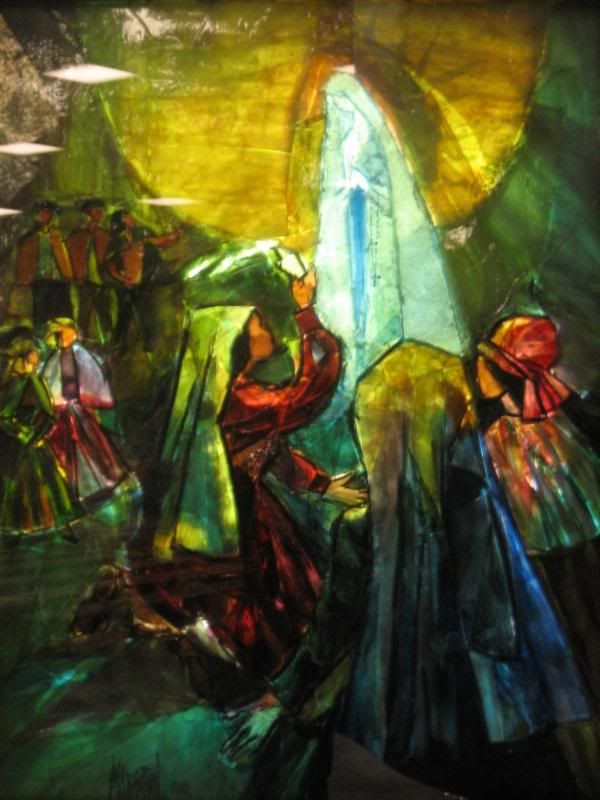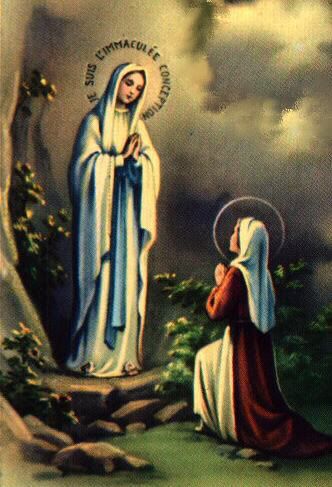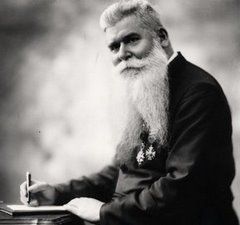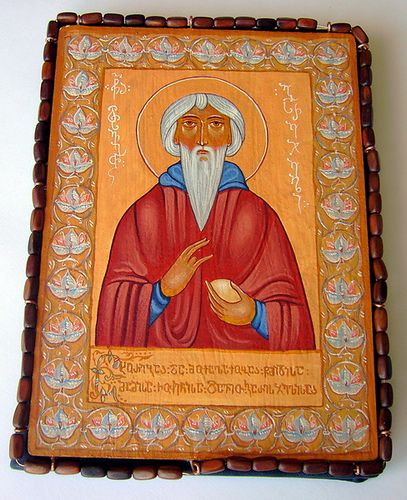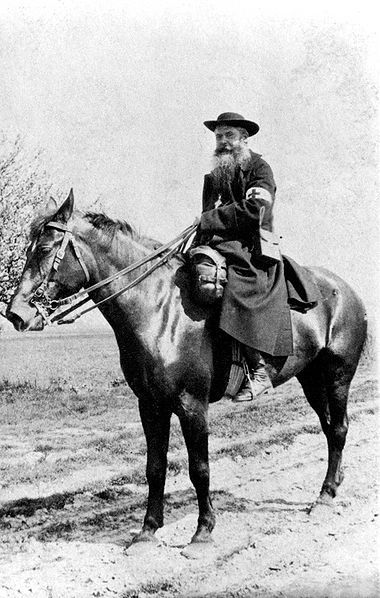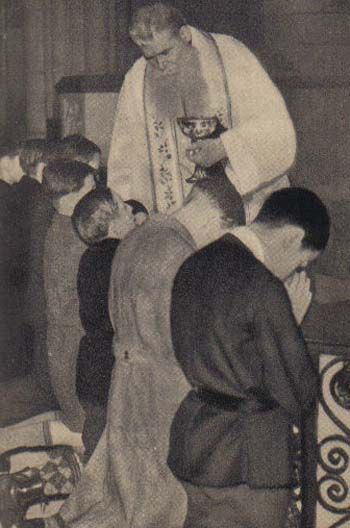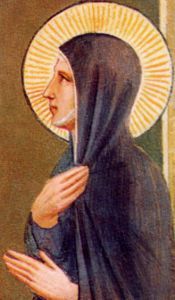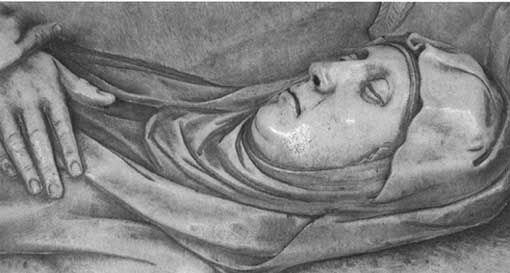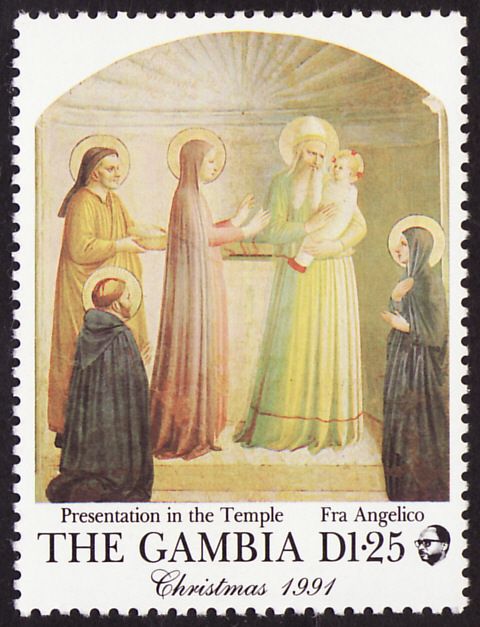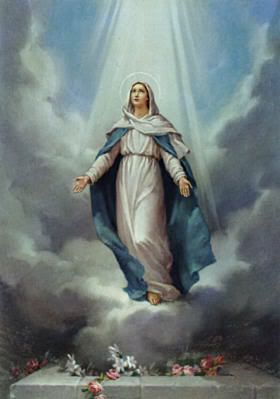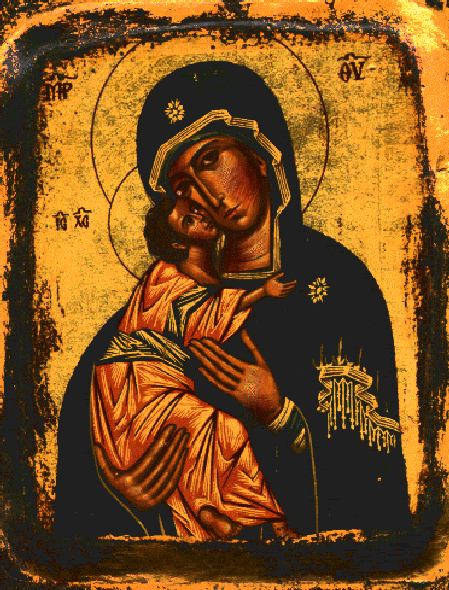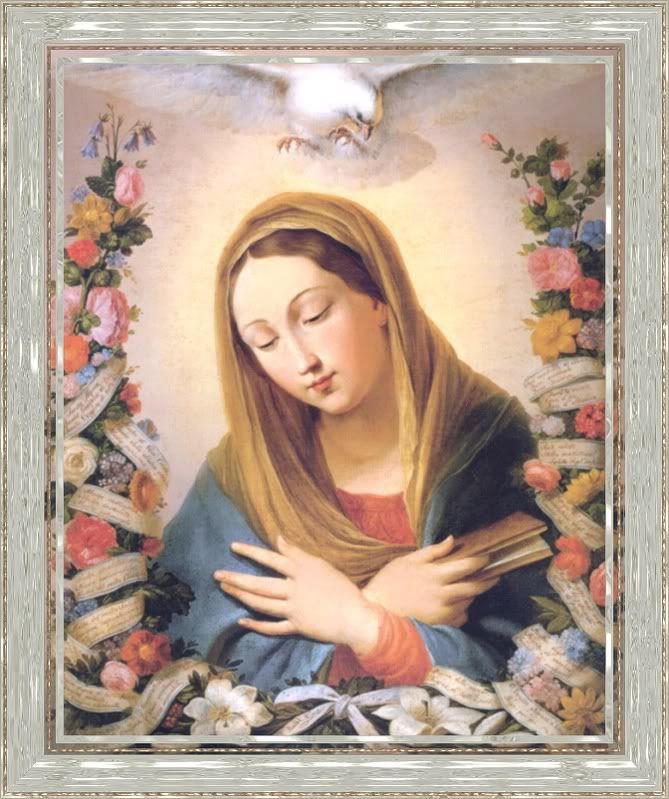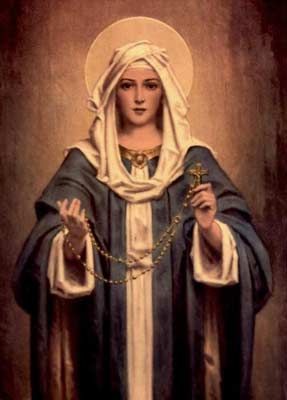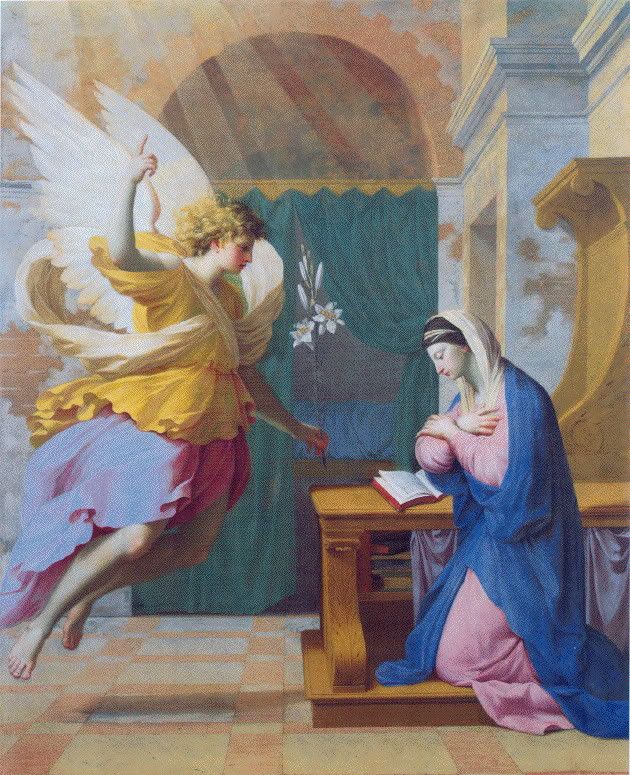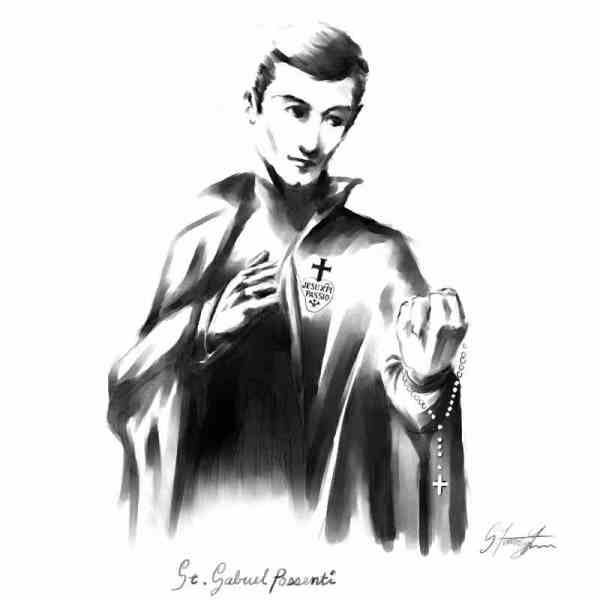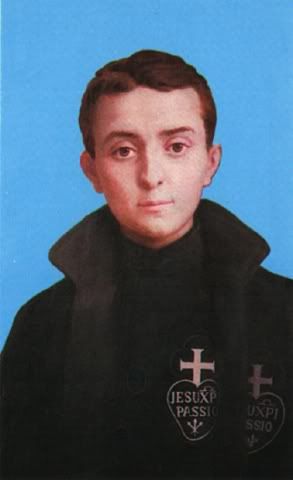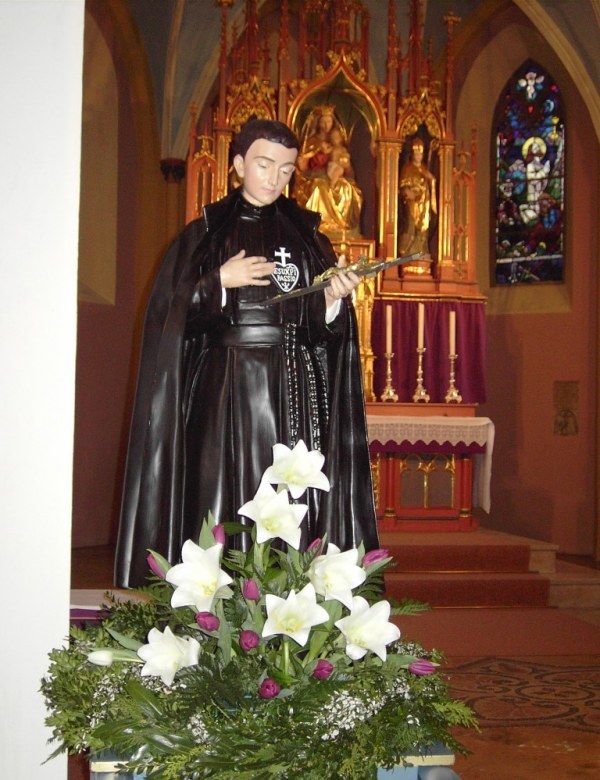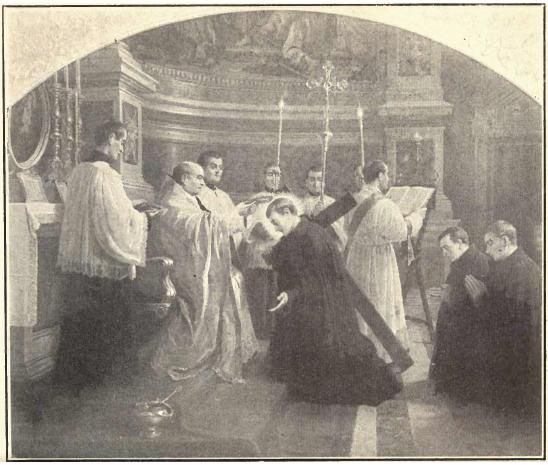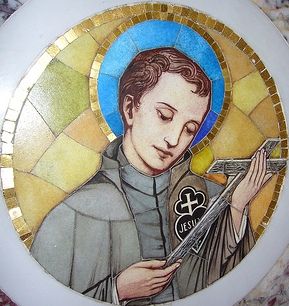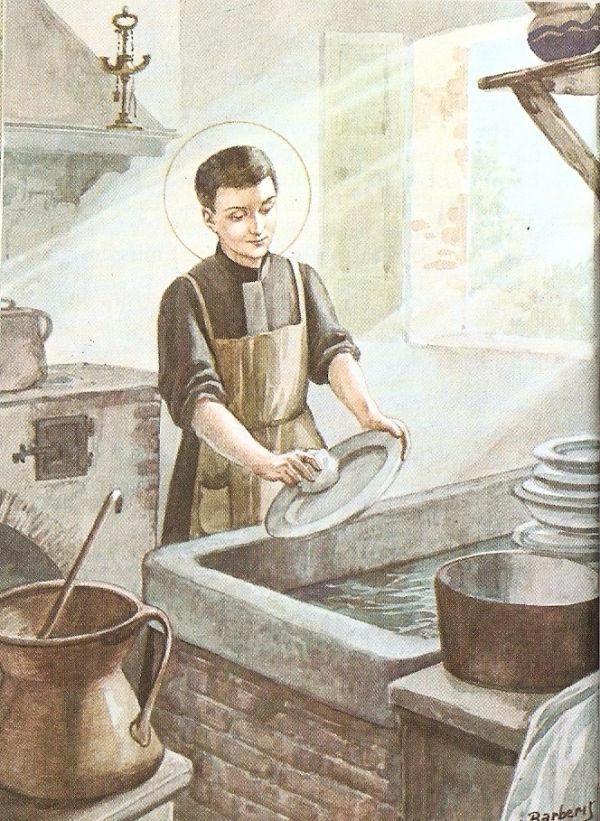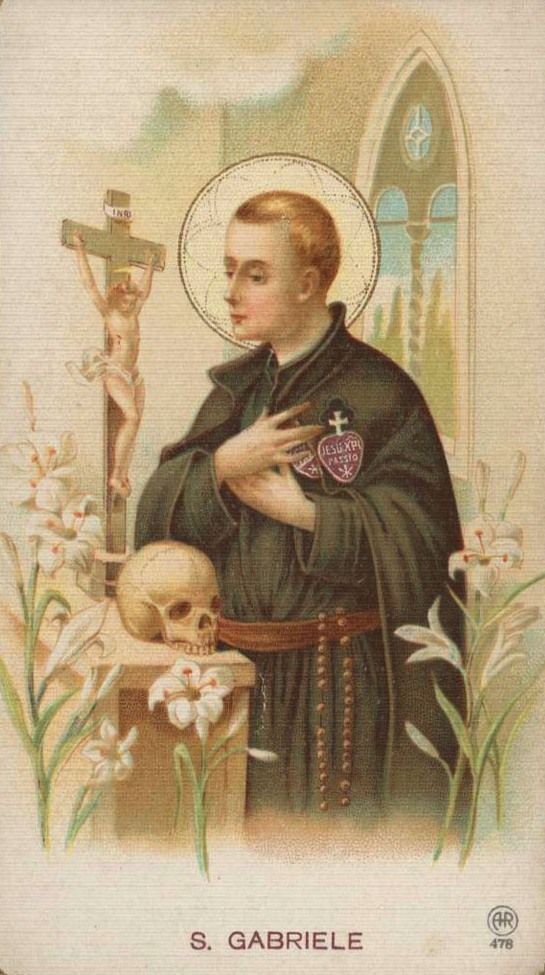We continue our re-publishing of previous posts chronicling the miraculous unfolding of events that took place at Lourdes in 1858. For an introduction to the series, see here. Our Lady of Lourdes, pray for us!
On Sunday, February 28, 1858, Our Lady of Lourdes appeared to Saint Bernadette Soubirous at the grotto in Lourdes for the eleventh time. Beginning on February 11, The Blessed Virgin had been appearing to Bernadette Soubirous, each time bringing a message of prayer, penance, poverty, and participation. Through these posts, we continue our journey with Saint Bernadette as we encounter Our Blessed Mother through her eyes, memories, and words. During the previous nine visitations (February 11, 14, 18, 19, 20, 21, 23, 24, 25, and 27) the Blessed Virgin, Our Lady of Lourdes, communicated the message of Lourdes to all mankind, through Saint Bernadette. She implored us, saying, “Penance, Penance, Penance. Pray to God for sinners.” Our Blessed Mother further invited Bernadette to drink and bathe in the muddy water of the grotto, after which a clear flowing spring came forth where none had existed before. Our Lady of Lourdes commanded, “Go drink in the spring and wash yourself there,” something that faithful pilgrims continue to do each day. (For personal reflections on my experience at Lourdes, see here and here).
During the tenth visitation, the Blessed Mother appeared again to Bernadette, but remained quiet. Bernadette was relieved, as Our Lady of Lourdes had not appeared the day before, and she had been afraid that somehow she had offended the beautiful lady. While Bernadette had been graced with a visitation, aquero had remained silent, smiled at Bernadette’s acts of penance, and prayed the Rosary with her.
During the eleventh visitation, Our Blessed Mother repeated her instructions to pray for sinners, and to offer acts of penance to God for their salvation. As typical, Bernadette carried a lighted blessed candle with her, knelt in prayer before a crowd nearing 1,000 curious onlookers, and repeated her seemingly bizarre (to those observing) acts of penance. The spring, which had only appeared days before, continued to flow strong and pure and clear.
Our Blessed Mother would appear to Bernadette seven more times at the grotto at Massabielle, each time more and more people accompanying Bernadette, hoping to catch a glimpse of the beautiful lady she referred to. Given the crowds, the local priests and religious would soon be forced to get involved, whereas previously they had observed hoping to have the apparitions discredited. Our Lady would also soon make a request of the community, one which would ensure continued devotion to Our Lady of Lourdes, and continued propagation of the message of Lourdes.
Saint Bernadette, you always enjoyed serving others.
In February 1858, the Blessed Virgin appeared to you when you were gathering wood.
Among your sisters, you have learned to treat the sick and those in need.
Later, in Nevers, you were an excellent nurse, offering an attentive and intelligent charity.
Saint Bernadette, Like Mary, who saw the family’s needs in Cana, inspire in me the same generosity and the same faith that you see in Christ.
Lord, you have given us brothers and sisters to love. We pray that our eyes, our hands, and our hearts are open to all those that you put in our way. Amen.
Monday, February 28, 2011
February 28: Blessed Daniel Brottier and Blessed Villana de’Botti
Today, February 28, we celebrate the feast of two holy men and women: Blessed Daniel Brottier (1876-1936) and Blessed Villana de’Botti (1332-1361). While from very different times and places, both Blessed Daniel and Villana answered the call of the Lord in their own way, through repentance and service, courage and sacrifice.
Blessed Daniel Brottier (1876-1936) was born in France to a devout family, and earnestly felt the call of the Lord to the religious life. He was ordained in 1899, and began his career as a professor, teaching at the college of Pontlevov. While he loved his work, interacting with students, he felt strongly called to missionary work, and at the age of 26, entered the Order of the Congregation of the Holy Ghost. Located in Orly, France, this missionary Order sent priests and religious throughout the world.
The following year, Daniel was sent to Senegal, West Africa, where he remained for eight years, preaching among the native people. While in Africa his health suffered, eventually forcing him to return to Europe. Upon his return, he was commissioned to chair the fund-raising campaign to build a cathedral in Dakar, Senegal, as well as to support the on-going missionary work in that portion of the world. Blessed Daniel engaged in this task with zeal, honoring the Africans who had died fighting for France, and the French who had died fighting for Africa. His campaign—built on equality and respect between races—was successful, and the cathedral was built. It was consecrated only weeks before his death in 1936.
When World War I broke out, Daniel immediately volunteered as a chaplain for the French forces, and spent four years on the front lines of horrific battles. Risking his life repeatedly, he ministered to the suffering and dying on the battlefields, miraculously escaping injury himself. For his bravery, he was cited six times, receiving the Croix de Guerre and the Legion of Honour. Blessed Daniel attributed his survival to the intercession of saint Therese of Lisieux, and built a chapel in her honor at the conclusion of the war in Auteuil, France. There, he assumed administrative responsibilities of the Orphan Apprentices of Auteuil—a project established to provide for orphaned and abandoned children. There, he spent the remaining thirteen years of his life, and was buried.
Blessed Daniel is remembered for saying: “My secret is this: help yourself and heaven will help you. ... I have no other secret. If the good God worked miracles, through Thérèse's intercession, I think I can say in all justice that we did everything, humanly speaking, to be deserving, and that they were the divine reward of our work, prayers and trust in providence.”
Blessed Villana de’Botti (1332-1361) was born to a pious merchant in Florence, Italy. Extremely drawn to the religious life, Villana ran away from home at the young age of 13 to join a convent. Without her family’s approval, she was refused admission, and returned home. Hoping to prevent future similar incidents, her father arranged for her to be married, which she obediently did.
Following her marriage, Villana gave up her pious manner, embracing the pleasures of the world, and living an idle and lazy life. One day as she was getting dressed for social entertainment, clad in a gorgeous dress adorned with pearls and precious stones, she looked at herself in a mirror. To her horror, the reflection that met her eyes was that of a hideous demon. A second and a third mirror showed the same ugly form. Thoroughly alarmed and recognizing in the reflection the image of her sin-stained soul, she tore off her fine attire and, clad in the simplest clothes she could find, ran weeping to the Dominican Fathers at Santa Maria Novella to make a full confession and to request absolution and help.
This glimpse in the mirror of her sins proved to be the turning point of Blessed Villana’s life. From that moment on, she embraced a life of piety, charity, and good works, and never strayed again from the Lord. Villana entered the Third Order of Saint Dominic, and rapidly advanced in the spiritual life. She concentrated on her vocation of married life, and spent her free time praying and reading Scripture and the lives of the saints. Her desire to atone for her earlier life sometimes overwhelmed her, and her husband and family had to stop her begging door to door and doing other penances. She was given to religious ecstasies at Mass, but became the object of much ridicule and slander. Her health suffered, but she received visions of Our Lady and the saints, and had the gift of prophecy. Even her fiercest opponents eventually came to see her as a living saint.
As she lay on her deathbed, she asked that the Passion should be read to her, and at the words "He bowed His head and gave up the ghost,” she crossed her hands on her chest and passed away. Her body was taken to Santa Maria Novella, where it became such an object of veneration that for over a month it was impossible to proceed with the funeral. People struggled to obtain shreds of her clothing, and she was honored as a saint from the day of her death.
O God, our merciful Father, you called Blessed Villana back from the emptiness of the world and aroused in her a spirit of humility and true penitence. Recreate in our hearts the power of your love and, filled by that same spirit, may we serve you in newness of life. We ask this through our Lord Jesus Christ, your Son, who lives and reigns with you and the Holy Spirit, one God, for ever and ever.
Both Blessed Daniel’s and Villana’s lives reveal to us our directive to listen for, and answer the call of Our Heavenly Father. We are called to lives of courage, devotion, charity, and obedience. We are called throughout our lives, and as Blessed Villana teaches us, it is never too late to answer. We pray today for the strength and courage to answer our personal call!
Year 2: Day 59 of 365
Prayer Intentions: The courage to answer the call of the Lord
Requested Intentions: Freedom from medical difficulties, employment, successful relationship (D); End to suffering for sick brother; reconciliation of estranged family (E); End to husband’s addiction; Improved relationship; strength (M); Successful God-centered marriage; Sacramental life (M); Healing, successful relationship (S); For successful marriage (A); For a husband’s freedom from addiction (C); Freedom from pain and illness for a friend (M); Financial freedom (J); Successful passing of occupational examination (S); Healing and conversion, sale of house (L); Occupational success for employee and colleagues (J); Employment for a son (C); Successful attainment of an important appointed position (J); Recovery from cancer for a friend (Z); For a family’s freedom from sin (M); For a daughter with Diabetes (A); Healing of a father following stroke (S).
Blessed Daniel Brottier (1876-1936) was born in France to a devout family, and earnestly felt the call of the Lord to the religious life. He was ordained in 1899, and began his career as a professor, teaching at the college of Pontlevov. While he loved his work, interacting with students, he felt strongly called to missionary work, and at the age of 26, entered the Order of the Congregation of the Holy Ghost. Located in Orly, France, this missionary Order sent priests and religious throughout the world.
The following year, Daniel was sent to Senegal, West Africa, where he remained for eight years, preaching among the native people. While in Africa his health suffered, eventually forcing him to return to Europe. Upon his return, he was commissioned to chair the fund-raising campaign to build a cathedral in Dakar, Senegal, as well as to support the on-going missionary work in that portion of the world. Blessed Daniel engaged in this task with zeal, honoring the Africans who had died fighting for France, and the French who had died fighting for Africa. His campaign—built on equality and respect between races—was successful, and the cathedral was built. It was consecrated only weeks before his death in 1936.
When World War I broke out, Daniel immediately volunteered as a chaplain for the French forces, and spent four years on the front lines of horrific battles. Risking his life repeatedly, he ministered to the suffering and dying on the battlefields, miraculously escaping injury himself. For his bravery, he was cited six times, receiving the Croix de Guerre and the Legion of Honour. Blessed Daniel attributed his survival to the intercession of saint Therese of Lisieux, and built a chapel in her honor at the conclusion of the war in Auteuil, France. There, he assumed administrative responsibilities of the Orphan Apprentices of Auteuil—a project established to provide for orphaned and abandoned children. There, he spent the remaining thirteen years of his life, and was buried.
Blessed Daniel is remembered for saying: “My secret is this: help yourself and heaven will help you. ... I have no other secret. If the good God worked miracles, through Thérèse's intercession, I think I can say in all justice that we did everything, humanly speaking, to be deserving, and that they were the divine reward of our work, prayers and trust in providence.”
Blessed Villana de’Botti (1332-1361) was born to a pious merchant in Florence, Italy. Extremely drawn to the religious life, Villana ran away from home at the young age of 13 to join a convent. Without her family’s approval, she was refused admission, and returned home. Hoping to prevent future similar incidents, her father arranged for her to be married, which she obediently did.
Following her marriage, Villana gave up her pious manner, embracing the pleasures of the world, and living an idle and lazy life. One day as she was getting dressed for social entertainment, clad in a gorgeous dress adorned with pearls and precious stones, she looked at herself in a mirror. To her horror, the reflection that met her eyes was that of a hideous demon. A second and a third mirror showed the same ugly form. Thoroughly alarmed and recognizing in the reflection the image of her sin-stained soul, she tore off her fine attire and, clad in the simplest clothes she could find, ran weeping to the Dominican Fathers at Santa Maria Novella to make a full confession and to request absolution and help.
This glimpse in the mirror of her sins proved to be the turning point of Blessed Villana’s life. From that moment on, she embraced a life of piety, charity, and good works, and never strayed again from the Lord. Villana entered the Third Order of Saint Dominic, and rapidly advanced in the spiritual life. She concentrated on her vocation of married life, and spent her free time praying and reading Scripture and the lives of the saints. Her desire to atone for her earlier life sometimes overwhelmed her, and her husband and family had to stop her begging door to door and doing other penances. She was given to religious ecstasies at Mass, but became the object of much ridicule and slander. Her health suffered, but she received visions of Our Lady and the saints, and had the gift of prophecy. Even her fiercest opponents eventually came to see her as a living saint.
As she lay on her deathbed, she asked that the Passion should be read to her, and at the words "He bowed His head and gave up the ghost,” she crossed her hands on her chest and passed away. Her body was taken to Santa Maria Novella, where it became such an object of veneration that for over a month it was impossible to proceed with the funeral. People struggled to obtain shreds of her clothing, and she was honored as a saint from the day of her death.
O God, our merciful Father, you called Blessed Villana back from the emptiness of the world and aroused in her a spirit of humility and true penitence. Recreate in our hearts the power of your love and, filled by that same spirit, may we serve you in newness of life. We ask this through our Lord Jesus Christ, your Son, who lives and reigns with you and the Holy Spirit, one God, for ever and ever.
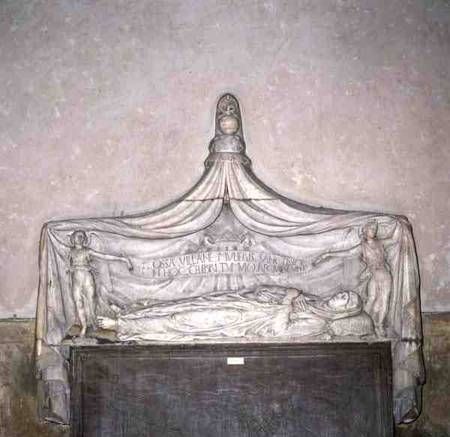 |
| Tomb of Blessed Villana de’Botti |
Both Blessed Daniel’s and Villana’s lives reveal to us our directive to listen for, and answer the call of Our Heavenly Father. We are called to lives of courage, devotion, charity, and obedience. We are called throughout our lives, and as Blessed Villana teaches us, it is never too late to answer. We pray today for the strength and courage to answer our personal call!
Year 2: Day 59 of 365
Prayer Intentions: The courage to answer the call of the Lord
Requested Intentions: Freedom from medical difficulties, employment, successful relationship (D); End to suffering for sick brother; reconciliation of estranged family (E); End to husband’s addiction; Improved relationship; strength (M); Successful God-centered marriage; Sacramental life (M); Healing, successful relationship (S); For successful marriage (A); For a husband’s freedom from addiction (C); Freedom from pain and illness for a friend (M); Financial freedom (J); Successful passing of occupational examination (S); Healing and conversion, sale of house (L); Occupational success for employee and colleagues (J); Employment for a son (C); Successful attainment of an important appointed position (J); Recovery from cancer for a friend (Z); For a family’s freedom from sin (M); For a daughter with Diabetes (A); Healing of a father following stroke (S).
Sunday, February 27, 2011
Our Lady of Lourdes: The Tenth Apparition
We continue our re-publishing of previous posts chronicling the miraculous unfolding of events that took place at Lourdes in 1858. For an introduction to the series, see here. Our Lady of Lourdes, pray for us!
February 27 marks the anniversary of the tenth apparition of Our Blessed Mother to Saint Bernadette Soubirous at the grotto in Lourdes. Beginning on February 11, 1858, The Blessed Virgin appeared to Bernadette Soubirous a total of 18 times bringing a message of prayer, penance, poverty, and participation. Through these posts, we continue our journey with Saint Bernadette as we encounter Our Blessed Mother through her eyes, memories, and words. During the previous nine visitations (February 11, 14, 18, 19, 20, 21, 23, 24, and 25) the Blessed Virgin, Our Lady of Lourdes, communicated the message of Lourdes to all mankind, through Saint Bernadette. She implored us, saying, “Penance, Penance, Penance. Pray to God for sinners.” Our Blessed Mother further invited Bernadette to drink and bathe in the muddy water of the grotto, after which a clear flowing spring came forth where none had existed before. Our Lady of Lourdes commanded, “Go drink in the spring and wash yourself there,” something that faithful pilgrims continue to do each day on personal pilgrimages.
Following the ninth visitation of Mary on the 25th of February, Bernadette’s mother and aunts took her home, embarrassed by her antics—crawling on the ground like an animal, kissing the dirt for sinners, drinking muddy water and smearing it on her face. Saint Bernadette’s behavior had also raised the suspicion and ire of the local authorities. She was brought in for questioning by the imperial prosecutor, who again threatened her with jail if she refused to recant her story and stay away from the grotto at Massabielle. While Bernadette’s mother was clearly shaken by the encounter with the grand prosecutor, Bernadette remained calm and consistent, refusing both orders. Rather than jail the child, the prosecutor sent her home.
The following day, February 26, Bernadette returned to the grotto, but Our Blessed Mother did not appear. Being a Friday of Lent, Bernadatte repeated her acts of penance as instructed by the Blessed Virgin, praying the Rosary, kissing the ground in penance for sinners, and both drinking and washing in the spring. To Bernadette’s surprise, the spring was now perfectly clear and clean, and flowing abundantly like the triumph of grace over sin! Bernadette was troubled, however, as she feared that she had somehow offended the Blessed Mother, and that is why she hadn’t returned.
Nonetheless, Saint Bernadette came back to the grotto the following day, honoring her promise to aquero, and was graced by a visitation. Our Blessed Mother said nothing, but silently prayed with Bernadette, and smiled her gentle smile, encouraging Bernadette to continue her acts of penance. Upon completion of the Rosary, Our Blessed Lady of Lourdes disappeared, and Bernadette returned home filled with peace.
Our Blessed Mother would appear to Bernadette eight more times at the grotto at Massabielle, each time more and more people accompanying Bernadette, hoping to catch a glimpse of the beautiful lady she referred to. Each time she appears, Our Lady encourages us to pray the Rosary, to hold up those prayers as penance for sinners, and to think of those who are suffering. Her choice of Saint Bernadette, an uneducated and poor girl, reminds us of our worth in the eyes of the Lord, and calls us each to make a difference in the world by remaining open to the message of Lourdes.
February 27 marks the anniversary of the tenth apparition of Our Blessed Mother to Saint Bernadette Soubirous at the grotto in Lourdes. Beginning on February 11, 1858, The Blessed Virgin appeared to Bernadette Soubirous a total of 18 times bringing a message of prayer, penance, poverty, and participation. Through these posts, we continue our journey with Saint Bernadette as we encounter Our Blessed Mother through her eyes, memories, and words. During the previous nine visitations (February 11, 14, 18, 19, 20, 21, 23, 24, and 25) the Blessed Virgin, Our Lady of Lourdes, communicated the message of Lourdes to all mankind, through Saint Bernadette. She implored us, saying, “Penance, Penance, Penance. Pray to God for sinners.” Our Blessed Mother further invited Bernadette to drink and bathe in the muddy water of the grotto, after which a clear flowing spring came forth where none had existed before. Our Lady of Lourdes commanded, “Go drink in the spring and wash yourself there,” something that faithful pilgrims continue to do each day on personal pilgrimages.
Following the ninth visitation of Mary on the 25th of February, Bernadette’s mother and aunts took her home, embarrassed by her antics—crawling on the ground like an animal, kissing the dirt for sinners, drinking muddy water and smearing it on her face. Saint Bernadette’s behavior had also raised the suspicion and ire of the local authorities. She was brought in for questioning by the imperial prosecutor, who again threatened her with jail if she refused to recant her story and stay away from the grotto at Massabielle. While Bernadette’s mother was clearly shaken by the encounter with the grand prosecutor, Bernadette remained calm and consistent, refusing both orders. Rather than jail the child, the prosecutor sent her home.
The following day, February 26, Bernadette returned to the grotto, but Our Blessed Mother did not appear. Being a Friday of Lent, Bernadatte repeated her acts of penance as instructed by the Blessed Virgin, praying the Rosary, kissing the ground in penance for sinners, and both drinking and washing in the spring. To Bernadette’s surprise, the spring was now perfectly clear and clean, and flowing abundantly like the triumph of grace over sin! Bernadette was troubled, however, as she feared that she had somehow offended the Blessed Mother, and that is why she hadn’t returned.
Nonetheless, Saint Bernadette came back to the grotto the following day, honoring her promise to aquero, and was graced by a visitation. Our Blessed Mother said nothing, but silently prayed with Bernadette, and smiled her gentle smile, encouraging Bernadette to continue her acts of penance. Upon completion of the Rosary, Our Blessed Lady of Lourdes disappeared, and Bernadette returned home filled with peace.
Our Blessed Mother would appear to Bernadette eight more times at the grotto at Massabielle, each time more and more people accompanying Bernadette, hoping to catch a glimpse of the beautiful lady she referred to. Each time she appears, Our Lady encourages us to pray the Rosary, to hold up those prayers as penance for sinners, and to think of those who are suffering. Her choice of Saint Bernadette, an uneducated and poor girl, reminds us of our worth in the eyes of the Lord, and calls us each to make a difference in the world by remaining open to the message of Lourdes.
Saint Gabriel of Our Lady of Sorrows: Marian Creed
Today, February 27, marks the feast day of Saint Gabriel of Our Lady of Sorrows (1838-1862), the patron saint of young people, students, and young religious. Saint Gabriel’s short life is marked by piety, faith, and obedience to the Lord, and religious vocation at the behest of Our Blessed Mother. While the last six years of his life, spent as a brother in the Passionist Order, were marked by humility, self-denial, and simplicity, Gabriel’s early life was quite the opposite. His complete consecration of his life to the Lord, despite the temptations of the modern world which he so loved, make his sacrifice a vivid example of the Christian love and obedience we should strive for.
The Marian Creed of Saint Gabriel of Our Lady of Sorrows
As translated by the Passionist website, http://stgabriel.wordpress.com/
I believe, as it was revealed to St. Matilda “that all you heard, you heard prudently, and with great thankfulness, and held yourself to be above no-one.” And with the blessed St. Elizabeth I hold firmly that “you held yourself of little value and unworthy of the grace of God.”
I believe, O Mother of my joy, as you revealed to St. Bridget “that you merited to be the Mother of God because you regarded nothing you possessed and nothing that you were came from yourself alone.”
I believe that your divine motherhood was hidden from St. Joseph out of your humility, until that time when it was necessary for it to be revealed.You served St. Elizabeth and always gave yourself the last place.
I believe, as was told to St. Bridget, “that those amongst you held the same lowly view of you as yourself because you thought and held that nothing you had or were came from you and so in no way gave yourself glory but only the Divine Benefactor and Creator.”
And I confess with St. Bernadine that there is no creature whose humility compares with yours and that in the world there is nothing to compare with even the smallest degree of your humility.
I believe that if all in the earth and sky were placed in the fire of love which you burned towards God that they would be consumed in an instant, and that even all the ardour of the seraphim cannot be compared to it.
I believe that you alone perfectly fulfilled the precept “You shall love the Lord your God”, that you surpassed all men and all angels in your love of God, from the first moment of your life, and even the blessed seraphim learn how to love God from your heart.
I believe with St. Bonaventure, that you were filled with a divine fire that never lost its spark and that, as it was revealed to St. Bridget “you did not think of anything but God, nor did anything please you but God.”
I believe with Suarez, Rupert, St. Bernadine, and St. Ambrose that “whilst your body rested, the spirit kept watch”. And that to you sleep seemed to impede the love of God, whence to you applies “I sleep, but my heart is awake”. And that whilst on earth you continuously loved God, that you did nothing that you knew would not be to His joy, and that you were full of all charity “as much as could be possible for a pure creature”, in such a way that “you struck the divine heart and seized him”.
I believe that your love for neighbour was so great that there neither was, nor ever shall be, one who has loved as much as you and thus there is no creature in the world such as you. And that if one united all the love that all the mothers of the world have ever carried for their children, of all wives for their husbands and of all saints and angels for their devotees, it does not even reach the love you have for but one soul and that the love all mothers have for their sons is a mere shadow of the love you have for us.
I say of you with St. Augustine: “Heaven itself was opened by your faith, when you gave your ‘fiat’ to the angel of the Annunciation.
I believe with Suarez that you have more faith than all men and angels, and that “though the disciples doubted, you did not doubt; therefore with St. Cyril I call you “sceptre of the orthodox faith”.
I believe that you are the “Mother of Holy Hope” and the model of confidence in God.
You were the most mortified of all beings: I believe what St. Epiphanius and the Damascene tell me, that you were mortified particularly in the eyes whose gaze you kept always to the ground and refused to fix them on anything.
I believe what you revealed to blessed St. Elizabeth, that you achieved no virtue without toil and prayer.
I believe what you told St. Bridget, that “whenever possible you chose to bear indignities, and you kept no extra clothes for yourself and ate only a little food.” I believe that you “regarded the riches of this world as nothing more than mud”.
I believe firmly that you chose to be poor.
I believe, as you revealed to St. Bridget, “that you are the Queen of Heaven, the Mother of Mercy, the Guide of the Just and the Way by which sinners return to God.” And that “nobody is so unfortunate that he lives without your mercy” and that “nobody is so rejected by God that, having called upon your name, he will not then return to God who will have mercy, but he who does not approach your mercy will ever be miserable”.
I believe that you are the mother of all men, and in the person of St. John you received all as your children, according to the will of Jesus.
I believe that you are, as you told St. Bridget, “the mother of all sinners who hope to amend their ways”, and that you intercede for the sinful soul, saying ‘Have mercy on me!’”
I believe that you are our life, “and after God, the one hope of sinners”, as St. Augustine said.
I believe of you what you showed St. Gertrude; with your open mantle many find refuge; lions, bears, tigers and that you not only seek out sinners, but with great pity you welcome and caress them.
Through you we receive the inestimable gift of holy perseverance: “following you I will not deviate, praying to you I will not despair, if you remain I shall not fall, if you protect me I shall have no fear, with you as my guide I shall not tire, you shall keep watch over me until I come to you.” (St. Bernard)
You are the hope of Christians, and their help, especially in death, for as you told St. Bridget “you go as a mother to meet them in death because there you give them consolation and relief.” And that “you will not” as you told to St. John of God, “you will not abandon your devotees in the hour of death.”
You are the hope of all, especially sinners, you are “the City of Refuge” and especially those deprived of all hope.”
You are the “protector of the condemned, the hope of the despairing”, and as St. Bridget heard Jesus say of you “even the devils ask your mercy humbly”. “You do not abhor the sinner, no matter how offensive he be, if he raises only a sigh to you.” Of you I say with St. Bernard, “You raise the pitiful for the abyss of despair”.
I believe that you wish to help all those who invoke you, and that you are “the salvation of those who invoke you”, and that “your love to do good to us is greater than our desire to receive it”.
I believe, as you revealed to St. Gertrude, that you soon open wide your mantle to welcome those who have recourse to you, and that the angels hasten to protect your clients from the furies of hell. You protect those who seek you, and even when we do not quickly call upon your name “you hasten to our aid”.
I believe, as you revealed to St. Bridget, that “demons at once leave the soul when they hear the name of Mary”.
I confess with S. Girolamo, Epiphanius, Anthony and others that your name descended from heaven itself and was given to you by order of the divine.
I believe with St. Anthony of Padua that in your name is the same sweetness that St. Bernard found in the name of Jesus: “Your name O Mary is joy to the heart, honey to the lips, music to the ears”.
I believe that after the name of Jesus “there is no other name by which men receive such grace, such hope, such consolation”.
And with St. Bonaventure I confess that “your name cannot be invoked without great spiritual advantage”.
And I believe what you told St. Bridget, that “that there is no-one in this life who is so cold toward the love of God, that if he called upon your name with the will to repent, the devil would be able to remain with him”.
I believe that your intercession is morally necessary for salvation, and that all the graces of God come through your hands, and that all of the mercies which are dispensed to men, all of them come through you, and that “no-one enters into heavens who has not first passed through you to come to that heavenly gate.”.
I believe that your intercession is not only useful, but morally necessary.
I believe that you are the co-operator of our justification, “the restorer of men, the authoress of the salvation of mankind, the restorer of all the human family, the co-helper of redemption, the saviouress of the world”, that all those who are not received into this ship [Mary] will be lost in the sea of this world, and thus I believe that “no-one enters through the door of salvation unless you open it to them”, and that “nobody is saved except through you”.
I believe that “God has decided to concede nothing, except through you”, that “our salvation lies in your hands” and that “those who are without your aid are like those trying to fly without wings”.
I believe also that “it would be fruitless to pray to other saints without your help”; and that “whilst all can obtain with you, you can obtain without all”; and that “if you be silent no-one will lend their aid, none pray, but if you pray, all will come to help and intercede.”
And finally I say of you with St. Thomas that you are “all the hope of life”, and of you I say with St. Augustine “I confess that you are alone and unique as our intercessor in heaven”.
I believe that you are the treasurer of Jesus and that “no-one receives anything from God, except through you”, and that “in you can be found every good”.
I say with St. Bernadine of Siena that “of all the favours concede by God in the old covenant I do not doubt that the greatest of all was given to you alone” (not excluding Jesus).
I believe that “one breath of yours contains more suffrage than all the saints put together” and I confess with St. John Damascene that “in truth you can save anyone”.
I believe that as an advocate you do not refuse to defend even the cause of the most miserable.
I say to you with St. Andrew of Crete “Hail, O Divine Reconciliatrix of men”. And with St. Germanus “there is no end to your patronage”.
You recognise the love between sinners and God, and I believe you are the Most Sweet, created by God to capture men, and especially sinners, to turn them back to Him, as He revealed to St. Catherine of Siena; and thus “as the magnet draws iron, in the same way you attract hard hearts”, as you told St. Bridget.
You are always on guard to sympathise and succour our miseries, thus I call you with St. Epiphanius “Most Attentive”, and this is confirmed in what St. Bridget heard Jesus ask of you “Mother, tell me, what do you desire?” and you replied “I ask compassion for the miserable”.
I believe in the intrinsic mercy of your maternal nature, that the pilgrimage you made on this earth to the poor is exceeded in greatness now that you reign in heaven, in the same way that the sun exceeds the moon in splendour, as St. Bonaventure tells me.
And that since the celestial bodies are illuminated by the sun, so then there is not anyone in the world who, through you, does not share in the divine mercy, as you revealed to St. Bridget.
Also I believe with St. Bonaventure that “You are offended, O Lady, not only by those who injure you, but also by those who do not pray to you”.
And the same saint persuades me that “whomsoever excels in paying you homage will be far from perdition” and I believe with St. Hilary that “Though one be even a great sinner, if they are devoted to you they will not perish for eternity.”
And I say with St. Bonaventure: “he who neglects you will die in his sins. He who does not invoke you in this life will not enter the Kingdom of Heaven; for those from whom you withdraw your glace, there is no hope of salvation”.
I believe with Anselm that “he for whom you once prayed will not be lost forever”. And that devotion to you is a sure sign of salvation, that God does not grant this grace except to those whom he wishes to save, as the Damascene assures me.
And I conclude with St. Anthony “It is impossible for those to be saved from whom you turn away your face, for it is necessary in order to be saved and glorified that you have your gaze fixed on us, for you are our sponsor.”
I believe, as you already revealed to St. Bridget, that you are the mother of all the souls in purgatory, that the pain which they merited by faults they committed in this life, are in some way mitigated by your prayers.
Gladly therefore I say of you with St. Alphonsus, “happy and fortunate are your devotees as St. Bernadine assures us that “you free from the torments of purgatory in a particular way, those who have been devoted to you.” St. Bridget confirms this with what she heard Jesus say to you “You are my mother, you are the Mother of Mercy, the consolation of all souls in purgatory.”
I believe that you, being about to enter into paradise, without a doubt obtained permission to take with you all the souls which you found then in purgatory.
I believe also, as you promised to Pope John XXII, that those who are enrolled in the Brown Scapular will be delivered by you from purgatory, on the Saturday after their death. But how happy are your devoted clients “for whom you shall open the gates of heaven.” You are “the entrance gate to the heavenly Jerusalem, the blessed gate of heaven, the path to paradise”.
I believe that “in [the heavenly] Jerusalem your power includes commanding whomsoever you will and similarly guiding into heaven whomsoever you will.” For you heaven is opened, hell is emptied, the heavenly Jerusalem is restored, the miserable at the point of damnation are restored to life.” (St. Bernard)
I believe that “he who listens to you shall not be confounded and those who labour under you shall not sin”, and I recognise in you the celestial pilot who leads to the eternal port your devotees who you recover in the vessel of your protection, as was shown to St. Mary Magdalene de’ Pazzi; and that devotion to you, as St. Bernard said, “is an infallible sign of eternal salvation”, and with Blessed Alan “that he who practises this devotion (the frequent recitation of the Hail Mary) is a sign of great worthiness of predestination to glory”.
And I conclude with the Abbot Guerric: “to serve the Queen of Heaven is to reign already in heaven and living in obedience to her commands is more than to reign”. I believe with St. Anthony that “of all the saints, none can be found with such compassion for the weak as you, O Most Blessed Virgin Mary”.
You give more than we ask of you: “Seeing our miseries you hasten to help us with your mercy”. “You are always working to secure our salvation.”
“How many” I say with the Abbot of Celles, “are those who are justly condemned in your Son’s justice, who you, being the Mother of Mercy, free from punishment”.
And I believe what the Lord told St. Bridget: “Without your intercession in prayer, one cannot hope for mercy.”
And I hold with St. Fulgensius that “the sky and the earth would have been destroyed long since, had your prayers not sustained them”.
I believe that you are higher than all the saints and angels, to whom you are superior, and that “such is your perfection, that God alone can know it”.
I believe that “after being God, there is being the Mother of God” and thus “you could not be more united to God without becoming God” (Albert the Great)
I believe that “the dignity of the Mother of God is infinite of its kind”; and that your state is the highest “that could be given to a pure creature”.
I confess with St. Bonaventure that “it is the greatest grace conferrable upon a pure creature to be Mother of God, and the greatest that God could give. God could create an enormous world, a vast heaven, but none greater could he make than the Mother of God”
I believe “that for you the world was created”, and that “by your order the world was sustained, that you were with him in creating all things” and that for love of you God did not destroy man after the Fall.
I believe that God has given you the greatest of all graces that in general and in particular He has given to all creature, and I believe what the Lord revealed to St. Bridget that your beauty surpasses that of all mankind and the angels.
I believe that your beauty dispels impure motives and generates purity.
I believe that you were like an infant but of this state you had only the innocence, not the defect of incapacity; you were a virgin first, but without the reproach of sterility, you were a mother, but a virgin.
You were occupied in the active life, but your labour did untangle your union with God; in contemplation you were recollected with God, but without neglect of your duties.
Death touched you but without distress or corruption of the body.
I believe with Albert the Great that you were the first who, without advice and without the example of another, offered to God your virginity, and give to Him all those who have imitated you and to whom you are the standard-bearer, and that for you your most pure spouse Joseph retained his virginity; and that to conserve virginity you would have happily renounced, with divine approval, the dignity of being the Mother of God.
The Marian Creed of Saint Gabriel of Our Lady of Sorrows
As translated by the Passionist website, http://stgabriel.wordpress.com/
I believe, as it was revealed to St. Matilda “that all you heard, you heard prudently, and with great thankfulness, and held yourself to be above no-one.” And with the blessed St. Elizabeth I hold firmly that “you held yourself of little value and unworthy of the grace of God.”
I believe, O Mother of my joy, as you revealed to St. Bridget “that you merited to be the Mother of God because you regarded nothing you possessed and nothing that you were came from yourself alone.”
I believe that your divine motherhood was hidden from St. Joseph out of your humility, until that time when it was necessary for it to be revealed.You served St. Elizabeth and always gave yourself the last place.
I believe, as was told to St. Bridget, “that those amongst you held the same lowly view of you as yourself because you thought and held that nothing you had or were came from you and so in no way gave yourself glory but only the Divine Benefactor and Creator.”
And I confess with St. Bernadine that there is no creature whose humility compares with yours and that in the world there is nothing to compare with even the smallest degree of your humility.
I believe that if all in the earth and sky were placed in the fire of love which you burned towards God that they would be consumed in an instant, and that even all the ardour of the seraphim cannot be compared to it.
I believe that you alone perfectly fulfilled the precept “You shall love the Lord your God”, that you surpassed all men and all angels in your love of God, from the first moment of your life, and even the blessed seraphim learn how to love God from your heart.
I believe with St. Bonaventure, that you were filled with a divine fire that never lost its spark and that, as it was revealed to St. Bridget “you did not think of anything but God, nor did anything please you but God.”
I believe with Suarez, Rupert, St. Bernadine, and St. Ambrose that “whilst your body rested, the spirit kept watch”. And that to you sleep seemed to impede the love of God, whence to you applies “I sleep, but my heart is awake”. And that whilst on earth you continuously loved God, that you did nothing that you knew would not be to His joy, and that you were full of all charity “as much as could be possible for a pure creature”, in such a way that “you struck the divine heart and seized him”.
I believe that your love for neighbour was so great that there neither was, nor ever shall be, one who has loved as much as you and thus there is no creature in the world such as you. And that if one united all the love that all the mothers of the world have ever carried for their children, of all wives for their husbands and of all saints and angels for their devotees, it does not even reach the love you have for but one soul and that the love all mothers have for their sons is a mere shadow of the love you have for us.
I say of you with St. Augustine: “Heaven itself was opened by your faith, when you gave your ‘fiat’ to the angel of the Annunciation.
I believe with Suarez that you have more faith than all men and angels, and that “though the disciples doubted, you did not doubt; therefore with St. Cyril I call you “sceptre of the orthodox faith”.
I believe that you are the “Mother of Holy Hope” and the model of confidence in God.
You were the most mortified of all beings: I believe what St. Epiphanius and the Damascene tell me, that you were mortified particularly in the eyes whose gaze you kept always to the ground and refused to fix them on anything.
I believe what you revealed to blessed St. Elizabeth, that you achieved no virtue without toil and prayer.
I believe what you told St. Bridget, that “whenever possible you chose to bear indignities, and you kept no extra clothes for yourself and ate only a little food.” I believe that you “regarded the riches of this world as nothing more than mud”.
I believe firmly that you chose to be poor.
I believe, as you revealed to St. Bridget, “that you are the Queen of Heaven, the Mother of Mercy, the Guide of the Just and the Way by which sinners return to God.” And that “nobody is so unfortunate that he lives without your mercy” and that “nobody is so rejected by God that, having called upon your name, he will not then return to God who will have mercy, but he who does not approach your mercy will ever be miserable”.
I believe that you are the mother of all men, and in the person of St. John you received all as your children, according to the will of Jesus.
I believe that you are, as you told St. Bridget, “the mother of all sinners who hope to amend their ways”, and that you intercede for the sinful soul, saying ‘Have mercy on me!’”
I believe that you are our life, “and after God, the one hope of sinners”, as St. Augustine said.
I believe of you what you showed St. Gertrude; with your open mantle many find refuge; lions, bears, tigers and that you not only seek out sinners, but with great pity you welcome and caress them.
Through you we receive the inestimable gift of holy perseverance: “following you I will not deviate, praying to you I will not despair, if you remain I shall not fall, if you protect me I shall have no fear, with you as my guide I shall not tire, you shall keep watch over me until I come to you.” (St. Bernard)
You are the hope of Christians, and their help, especially in death, for as you told St. Bridget “you go as a mother to meet them in death because there you give them consolation and relief.” And that “you will not” as you told to St. John of God, “you will not abandon your devotees in the hour of death.”
You are the hope of all, especially sinners, you are “the City of Refuge” and especially those deprived of all hope.”
You are the “protector of the condemned, the hope of the despairing”, and as St. Bridget heard Jesus say of you “even the devils ask your mercy humbly”. “You do not abhor the sinner, no matter how offensive he be, if he raises only a sigh to you.” Of you I say with St. Bernard, “You raise the pitiful for the abyss of despair”.
I believe that you wish to help all those who invoke you, and that you are “the salvation of those who invoke you”, and that “your love to do good to us is greater than our desire to receive it”.
I believe, as you revealed to St. Gertrude, that you soon open wide your mantle to welcome those who have recourse to you, and that the angels hasten to protect your clients from the furies of hell. You protect those who seek you, and even when we do not quickly call upon your name “you hasten to our aid”.
I believe, as you revealed to St. Bridget, that “demons at once leave the soul when they hear the name of Mary”.
I confess with S. Girolamo, Epiphanius, Anthony and others that your name descended from heaven itself and was given to you by order of the divine.
I believe with St. Anthony of Padua that in your name is the same sweetness that St. Bernard found in the name of Jesus: “Your name O Mary is joy to the heart, honey to the lips, music to the ears”.
I believe that after the name of Jesus “there is no other name by which men receive such grace, such hope, such consolation”.
And with St. Bonaventure I confess that “your name cannot be invoked without great spiritual advantage”.
And I believe what you told St. Bridget, that “that there is no-one in this life who is so cold toward the love of God, that if he called upon your name with the will to repent, the devil would be able to remain with him”.
I believe that your intercession is morally necessary for salvation, and that all the graces of God come through your hands, and that all of the mercies which are dispensed to men, all of them come through you, and that “no-one enters into heavens who has not first passed through you to come to that heavenly gate.”.
I believe that your intercession is not only useful, but morally necessary.
I believe that you are the co-operator of our justification, “the restorer of men, the authoress of the salvation of mankind, the restorer of all the human family, the co-helper of redemption, the saviouress of the world”, that all those who are not received into this ship [Mary] will be lost in the sea of this world, and thus I believe that “no-one enters through the door of salvation unless you open it to them”, and that “nobody is saved except through you”.
I believe that “God has decided to concede nothing, except through you”, that “our salvation lies in your hands” and that “those who are without your aid are like those trying to fly without wings”.
I believe also that “it would be fruitless to pray to other saints without your help”; and that “whilst all can obtain with you, you can obtain without all”; and that “if you be silent no-one will lend their aid, none pray, but if you pray, all will come to help and intercede.”
And finally I say of you with St. Thomas that you are “all the hope of life”, and of you I say with St. Augustine “I confess that you are alone and unique as our intercessor in heaven”.
I believe that you are the treasurer of Jesus and that “no-one receives anything from God, except through you”, and that “in you can be found every good”.
I say with St. Bernadine of Siena that “of all the favours concede by God in the old covenant I do not doubt that the greatest of all was given to you alone” (not excluding Jesus).
I believe that “one breath of yours contains more suffrage than all the saints put together” and I confess with St. John Damascene that “in truth you can save anyone”.
I believe that as an advocate you do not refuse to defend even the cause of the most miserable.
I say to you with St. Andrew of Crete “Hail, O Divine Reconciliatrix of men”. And with St. Germanus “there is no end to your patronage”.
You recognise the love between sinners and God, and I believe you are the Most Sweet, created by God to capture men, and especially sinners, to turn them back to Him, as He revealed to St. Catherine of Siena; and thus “as the magnet draws iron, in the same way you attract hard hearts”, as you told St. Bridget.
You are always on guard to sympathise and succour our miseries, thus I call you with St. Epiphanius “Most Attentive”, and this is confirmed in what St. Bridget heard Jesus ask of you “Mother, tell me, what do you desire?” and you replied “I ask compassion for the miserable”.
I believe in the intrinsic mercy of your maternal nature, that the pilgrimage you made on this earth to the poor is exceeded in greatness now that you reign in heaven, in the same way that the sun exceeds the moon in splendour, as St. Bonaventure tells me.
And that since the celestial bodies are illuminated by the sun, so then there is not anyone in the world who, through you, does not share in the divine mercy, as you revealed to St. Bridget.
Also I believe with St. Bonaventure that “You are offended, O Lady, not only by those who injure you, but also by those who do not pray to you”.
And the same saint persuades me that “whomsoever excels in paying you homage will be far from perdition” and I believe with St. Hilary that “Though one be even a great sinner, if they are devoted to you they will not perish for eternity.”
And I say with St. Bonaventure: “he who neglects you will die in his sins. He who does not invoke you in this life will not enter the Kingdom of Heaven; for those from whom you withdraw your glace, there is no hope of salvation”.
I believe with Anselm that “he for whom you once prayed will not be lost forever”. And that devotion to you is a sure sign of salvation, that God does not grant this grace except to those whom he wishes to save, as the Damascene assures me.
And I conclude with St. Anthony “It is impossible for those to be saved from whom you turn away your face, for it is necessary in order to be saved and glorified that you have your gaze fixed on us, for you are our sponsor.”
I believe, as you already revealed to St. Bridget, that you are the mother of all the souls in purgatory, that the pain which they merited by faults they committed in this life, are in some way mitigated by your prayers.
Gladly therefore I say of you with St. Alphonsus, “happy and fortunate are your devotees as St. Bernadine assures us that “you free from the torments of purgatory in a particular way, those who have been devoted to you.” St. Bridget confirms this with what she heard Jesus say to you “You are my mother, you are the Mother of Mercy, the consolation of all souls in purgatory.”
I believe that you, being about to enter into paradise, without a doubt obtained permission to take with you all the souls which you found then in purgatory.
I believe also, as you promised to Pope John XXII, that those who are enrolled in the Brown Scapular will be delivered by you from purgatory, on the Saturday after their death. But how happy are your devoted clients “for whom you shall open the gates of heaven.” You are “the entrance gate to the heavenly Jerusalem, the blessed gate of heaven, the path to paradise”.
I believe that “in [the heavenly] Jerusalem your power includes commanding whomsoever you will and similarly guiding into heaven whomsoever you will.” For you heaven is opened, hell is emptied, the heavenly Jerusalem is restored, the miserable at the point of damnation are restored to life.” (St. Bernard)
I believe that “he who listens to you shall not be confounded and those who labour under you shall not sin”, and I recognise in you the celestial pilot who leads to the eternal port your devotees who you recover in the vessel of your protection, as was shown to St. Mary Magdalene de’ Pazzi; and that devotion to you, as St. Bernard said, “is an infallible sign of eternal salvation”, and with Blessed Alan “that he who practises this devotion (the frequent recitation of the Hail Mary) is a sign of great worthiness of predestination to glory”.
And I conclude with the Abbot Guerric: “to serve the Queen of Heaven is to reign already in heaven and living in obedience to her commands is more than to reign”. I believe with St. Anthony that “of all the saints, none can be found with such compassion for the weak as you, O Most Blessed Virgin Mary”.
You give more than we ask of you: “Seeing our miseries you hasten to help us with your mercy”. “You are always working to secure our salvation.”
“How many” I say with the Abbot of Celles, “are those who are justly condemned in your Son’s justice, who you, being the Mother of Mercy, free from punishment”.
And I believe what the Lord told St. Bridget: “Without your intercession in prayer, one cannot hope for mercy.”
And I hold with St. Fulgensius that “the sky and the earth would have been destroyed long since, had your prayers not sustained them”.
I believe that you are higher than all the saints and angels, to whom you are superior, and that “such is your perfection, that God alone can know it”.
I believe that “after being God, there is being the Mother of God” and thus “you could not be more united to God without becoming God” (Albert the Great)
I believe that “the dignity of the Mother of God is infinite of its kind”; and that your state is the highest “that could be given to a pure creature”.
I confess with St. Bonaventure that “it is the greatest grace conferrable upon a pure creature to be Mother of God, and the greatest that God could give. God could create an enormous world, a vast heaven, but none greater could he make than the Mother of God”
I believe “that for you the world was created”, and that “by your order the world was sustained, that you were with him in creating all things” and that for love of you God did not destroy man after the Fall.
I believe that God has given you the greatest of all graces that in general and in particular He has given to all creature, and I believe what the Lord revealed to St. Bridget that your beauty surpasses that of all mankind and the angels.
I believe that your beauty dispels impure motives and generates purity.
I believe that you were like an infant but of this state you had only the innocence, not the defect of incapacity; you were a virgin first, but without the reproach of sterility, you were a mother, but a virgin.
You were occupied in the active life, but your labour did untangle your union with God; in contemplation you were recollected with God, but without neglect of your duties.
Death touched you but without distress or corruption of the body.
I believe with Albert the Great that you were the first who, without advice and without the example of another, offered to God your virginity, and give to Him all those who have imitated you and to whom you are the standard-bearer, and that for you your most pure spouse Joseph retained his virginity; and that to conserve virginity you would have happily renounced, with divine approval, the dignity of being the Mother of God.
Saint Gabriel of Our Lady of Sorrows: 41 Resolutions
Today, February 27, marks the feast day of Saint Gabriel of Our Lady of Sorrows (1838-1862), the patron saint of young people, students, and young religious. Saint Gabriel’s short life is marked by piety, faith, and obedience to the Lord, and religious vocation at the behest of Our Blessed Mother. While the last six years of his life, spent as a brother in the Passionist Order, were marked by humility, self-denial, and simplicity, Gabriel’s early life was quite the opposite. His complete consecration of his life to the Lord, despite the temptations of the modern world which he so loved, make his sacrifice a vivid example of the Christian love and obedience we should strive for.
Saint Gabriel modeled his life on that of Christ and Our Blessed Mother, committing himself to embody every virtue and shun every sin. To that end, he committed to writing a list of 41 Resolutions, guiding his daily life:
Gabriel’s 41 Resolutions
I will keep my rule, even the smallest thing.
I will not neglect any of my spiritual exercises.
I will shun idleness.
I will be punctual.
I will obey the sound of the bell as though it were the voice of God.
I will receive all things from the hand of God, as being sent by Him for my own personal benefit.
I will profit by every occasion for mortification that may occur.
I will fulfil exactly my ordinary duties, mortifying self in whatever would prove an obstacle to perfect obedience.
I will mortify my eyes and my tongue.
I will not leave my cell without necessity.
I will not inquire after anything through curiosity.
I will check my desire to talk.
I will increase the number of such like acts daily.
I will not take any food outside of mealtime.
I am poor and I should act accordingly.
I should be willing to put up with any inconvenience gladly.
I will not eat with avidity, but rather with reserve and with modesty, subjecting my appetite to reason.
I will mortify myself in ordinary things and whatever I feel inclined to do, saying in my heart: “O my God, I will not do this thing through mere inclination, but because it is thy will”.
I will be reserved toward those to whom I feel most inclined, prudently avoiding their presence and conversation.
I will not utter a word that might, in the least, turn to my praise.
I will not take pleasure in any praise bestowed upon me.
I will never excuse myself when I am blamed or corrected, nor even resent it interiorly, much less put the blame upon others.
I will never speak of the faults of others, even though they may be public, nor will I ever show want of esteem for others, whether in their presence or in their absence.
I will not judge ill of anyone.
I will show the good opinion I have of each one by covering up his faults.
I will consider everyone my superior, treating all with humility and reverence.
I will rejoice at the good done by others.
I will not permit myself to become interested in vain and useless things.
I will rejoice at the success of others.
I will practice charity and kindness, assisting, serving and pleasing all.
I will shun particular friendships, so as to offend no one.
Every morning and evening I will practice some act of humility, and gradually increase the number.
I will close my heart against disquiet of any kind.
I will suppress immediately all emotions of impetuosity and all affections that might cloud my mind, even lightly.
I will obey the voice of the Superior as if it were the voice of God himself.
In my obedience I will neither examine the why nor the wherefore.
I will conform my judgment to that of my Superior.
I will not employ time in conversing about purely worldly matters.
“Faithfulness in little things” is the motto I will always follow in my efforts to reach holiness.
I will try to reproduce in myself whatever I see edifying and virtuous in the conduct of others.
I will give to God the best that I have — the entire affection of my heart.
Saint Gabriel modeled his life on that of Christ and Our Blessed Mother, committing himself to embody every virtue and shun every sin. To that end, he committed to writing a list of 41 Resolutions, guiding his daily life:
Gabriel’s 41 Resolutions
I will keep my rule, even the smallest thing.
I will not neglect any of my spiritual exercises.
I will shun idleness.
I will be punctual.
I will obey the sound of the bell as though it were the voice of God.
I will receive all things from the hand of God, as being sent by Him for my own personal benefit.
I will profit by every occasion for mortification that may occur.
I will fulfil exactly my ordinary duties, mortifying self in whatever would prove an obstacle to perfect obedience.
I will mortify my eyes and my tongue.
I will not leave my cell without necessity.
I will not inquire after anything through curiosity.
I will check my desire to talk.
I will increase the number of such like acts daily.
I will not take any food outside of mealtime.
I am poor and I should act accordingly.
I should be willing to put up with any inconvenience gladly.
I will not eat with avidity, but rather with reserve and with modesty, subjecting my appetite to reason.
I will mortify myself in ordinary things and whatever I feel inclined to do, saying in my heart: “O my God, I will not do this thing through mere inclination, but because it is thy will”.
I will be reserved toward those to whom I feel most inclined, prudently avoiding their presence and conversation.
I will not utter a word that might, in the least, turn to my praise.
I will not take pleasure in any praise bestowed upon me.
I will never excuse myself when I am blamed or corrected, nor even resent it interiorly, much less put the blame upon others.
I will never speak of the faults of others, even though they may be public, nor will I ever show want of esteem for others, whether in their presence or in their absence.
I will not judge ill of anyone.
I will show the good opinion I have of each one by covering up his faults.
I will consider everyone my superior, treating all with humility and reverence.
I will rejoice at the good done by others.
I will not permit myself to become interested in vain and useless things.
I will rejoice at the success of others.
I will practice charity and kindness, assisting, serving and pleasing all.
I will shun particular friendships, so as to offend no one.
Every morning and evening I will practice some act of humility, and gradually increase the number.
I will close my heart against disquiet of any kind.
I will suppress immediately all emotions of impetuosity and all affections that might cloud my mind, even lightly.
I will obey the voice of the Superior as if it were the voice of God himself.
In my obedience I will neither examine the why nor the wherefore.
I will conform my judgment to that of my Superior.
I will not employ time in conversing about purely worldly matters.
“Faithfulness in little things” is the motto I will always follow in my efforts to reach holiness.
I will try to reproduce in myself whatever I see edifying and virtuous in the conduct of others.
I will give to God the best that I have — the entire affection of my heart.
